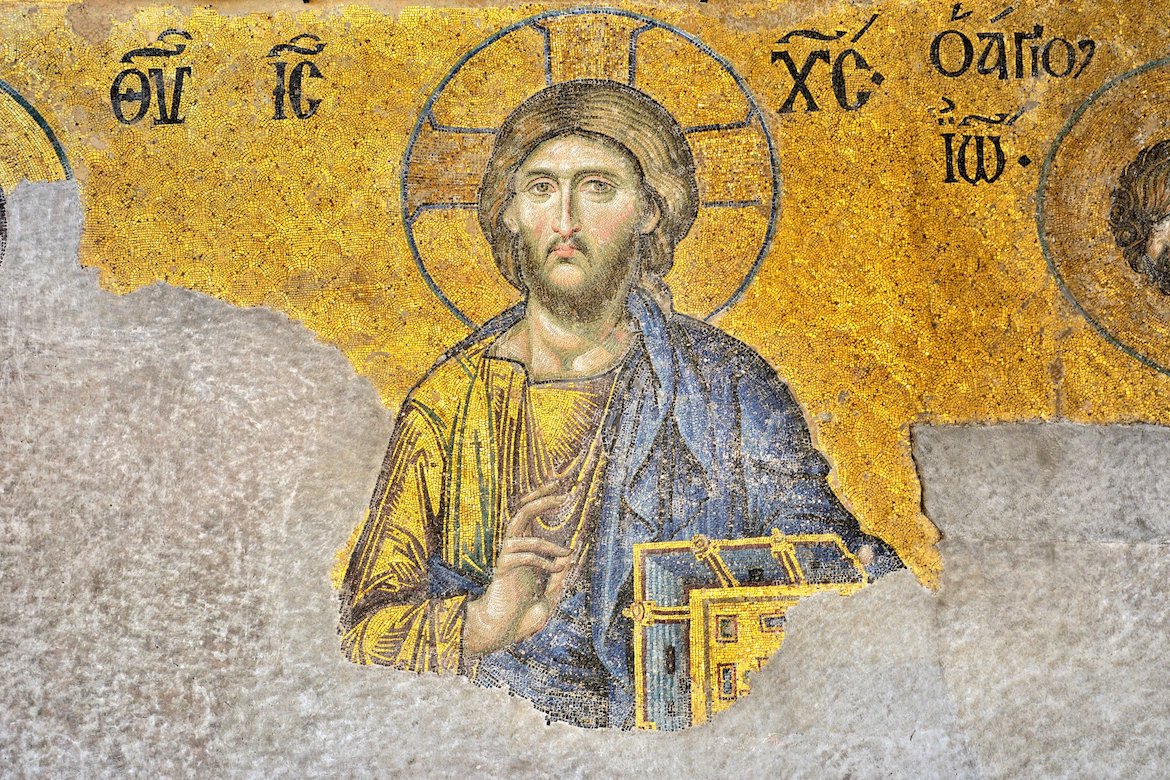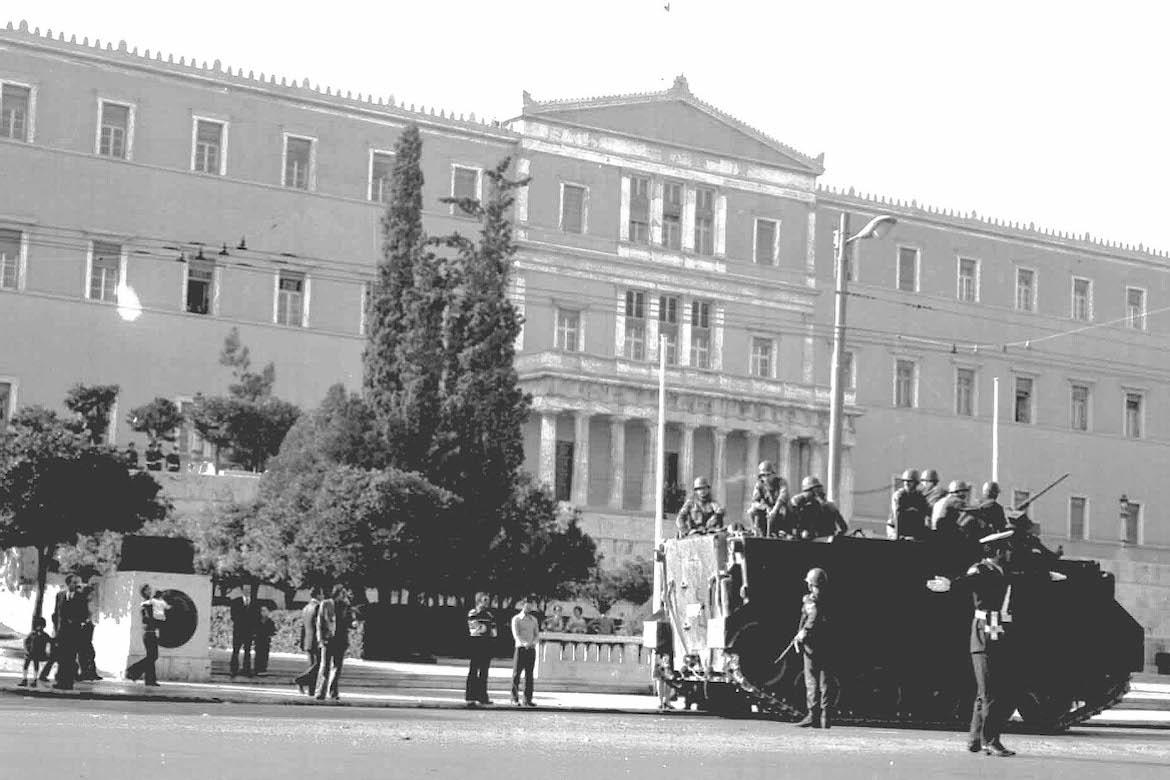Several years ago, an article appeared in this publication written by its editor Gregory Pappas entitled “90% of Americans with Greek Roots No Longer in Communion with the Greek Orthodox Church.”
The article was a response reflection to an article written by Peter S. Kehayes at the time that appeared on the official Greek Orthodox Archdiocese of America (GOA) website which the GOA subsequently removed. Kehayes’ article sounded an alarm at the dramatic drop in GOA membership. Though Kehayes’ major thesis that the root cause of decline as being the overwhelmingly high rate of Orthodox Christians intermarriage with Western Christians is debatable, needless to say, this was the first real acknowledgement on any public level of the decline by the Church.
As Pappas aptly pointed out in his essay, “If our faith hopes to have a presence in the future in America, it must be sensitive to the contemporary world. The span between past and future is too great.” It is with this in mind that I write this essay in the current context with new information that has made Kehayes’ and Pappas’ articles even more relevant and need I say just as prophetic today as they were when they were written those several years ago.
The GOA annual yearbook directory has not published its national registry statistics for several years. Prior to the last decade, it was common to see the annual statistics of baptisms, chrismations, weddings, and funerals [see here].
I remember one senior clergyman opining to me that the GOA was seeing a consistent annual plummet in the number of weddings it was doing. Hence, that was one of the reasons that the statistics were not being made available. Another reason for this non-publication was the decline in Orthodox Church’s number of baptisms/chrismations to funerals ratio. One does not need to be a statistician to realize by mere observation that in most of our parishes the numbers of funerals outweigh the numbers of baptisms/chrismations per year. Having said this, that is not to say, that there are exceptions to this rule in the parishes where membership has grown especially from converts from Protestantism and Roman Catholicism. Yet, these numbers do not offset the state of decline overall. Just the mere realities of the above mentioned situations dictate a thoughtful reflection. This becomes tantamount to look at church growth in the regions of the Southern and Western United States and neglecting the population transfers to those regions from the Northeast and Midwest.
On a formal statistical analysis, Alexei Krindatch has provided the Assembly of Orthodox Bishops over the years with statistics provided by the Hartford Seminary and Pew Research Center with numbers which showed a gradual decline beginning in 2006 in the GOA, Orthodox Church in America, Antiochian Orthodox, etc. In 2020, Krindatch produced a census which shows a precipitous decline beginning in 2010 over the next decade with a nearly twenty percent decline among all Eastern Orthodox in North America. You can read the statistical particulars of his studies by going to his website orthodoxreality.org and clicking the article “US Religion Census 2020: A Decade of Dramatic Changes in American Orthodox Churches.”
The purpose of my essay presented here is to explore the reasons (the “why”) for this decline and potential solutions (the “whats”) going forward. I want to explore these reasons and offer suggestions in an objective way without delving into and/or getting stuck in any political philosophies or ideologies.
In so doing, I want to focus on five major points which I believe need addressed to better understand the plight of Orthodoxy in America today: 1.) relevant engagement within the Church and outside the Church; 2.) avoidance of extremism; 3.) purpose of mission; 4.) understanding of priorities; and 5.) mindset. I want to caution the reader with one thing from the outset of this article. I write this with the personal understanding that I know several fine clergymen and fine lay people, thus the things that I mention here have no application to those people. Having said that, in this article, I am speaking in generalities to the problem of decline and how to possibly solve it.
First, the Church, through its ordained and lay leadership need to be seen as having a relevance to its own flock and the greater community outside its walls. Too many times, we see or hear of a congregation or diocese being so self-absorbed that it carries no meaning (beyond just a superficial sentimentality) to its own membership let alone to anyone else who is looking in from the outside. This in part explains why Protestant non-denominational churches have grown in number much at the expense of the mainline denominations.
In a Wall Street Journal article “Religion is on the Decline as More Adults Check ‘None,’” the matter of declining church attendance and membership in America is highlighted as being one of the significant trends in American life. The Orthodox are not immune to this type of decline phenomenon and thus are no different as individuals with the prevailing cultural trends.
The Liturgy should not be seen as an exotic ritual that one drops in on as a Sunday morning routine, but rather as a corporate worship experience where we connect with others in a transformative existential and supernatural way. As the Patristic writings warn, when that is not promoted and made available, then regardless of pomp and ceremony, emptiness and darkness prevails. Nothing exists in a vacuum.
This emptiness spills over from the Orthodox congregation and into the greater community. The view that the Church has nothing to say or do on a consistent basis when it comes to clothing the needy, providing shelter to the homeless, feeding the hungry, and basically helping those in need is just plain at odds with the Gospel message. Jesus warns of this as the criteria His just judgment at the Last Judgment: “Truly I tell you, whatever you did not do for one of the least of these, you did not do for me” (Matthew 25:45).
Quite frankly, it may be not be just a mere copout at times when we hear a former or estranged Orthodox say, “Oh, I stopped going to church because I can’t relate or connect to what it means in my life.” Can we argue against the examples of people whom we see who become better Christians and more engaged in church life, once they leave the Orthodox Church for another Christian faith tradition?
Moreover, should we be surprised? Are the GOA and OCA content with being regarded as just another moribund civic organization as the Rotary and the Elks Clubs which face extension due to changing cultural interests by the populace? The Church is called to change the cultural, not be culturally changed. Thus, it becomes just another irrelevant cultural casualty.
Second, the topic of extremism. This simply put is on one end, Church presented as a totally secular institution, and on the other end, Church as cauldron of religious extremism and fundamentalism of a variety of ideologies. Both are bad and disastrous. Unfortunately, we have seen and continue to see examples of these things both in our Orthodox churches and jurisdictional affiliations. In this regard, the Orthodox are no different than any other people in society.
It is disturbing though to hear this wide-spread notion that starting with the priest that he is has been told and is considered “the CEO of his parish.” Well, the last time I read and heard the ordination prayers, that was no where mentioned as part of the “job description.” Rather, the role of the priest is to be a shepherd and a guardian of the Divine Mysteries is the role of the priest as pastor.
The Apostle Paul writes that to Timothy and Titus. St. John Chrysostom admonishes that to his co-workers in the vineyard of the Lord in his treatise On the Priesthood. So, if the pastor of a parish is saying such nonsense, why should be surprised when his parishioners have a skewed understanding of the meaning of ekklesia?
Along with totally secular approach there is the polar opposite problem of extremism which are populated by fundamentalist ideologies which are too many to mention here. A recent example of this, are the several stories of people who refuse to receive the Covid-19 vaccine because of one conspiracy theory or another. If one wants to not receive that is his or her own choice.
Regardless of the fact if we consider that foolish or not. The problem becomes when the reasons for this position or that position on any topic for that matter, is based on the most un-Biblical and non-Patristic basis, but instead appeal to people’s fears usually for the purpose of control, all done in the name of “pure Orthodoxy.”
Should we be surprised when a person stops going to the Orthodox Church when it feels like a Byzantine ritualized version of a civic or fraternal organization? Should we be surprised when a person stops going to the Orthodox Church when it feels like a cultic experience?
Third, the basic mission of the local church is to preach the Gospel and to help those in their times of need. Anything short of this is mission failure. I remember a story from several years ago that my best friend from Pittsburgh Archon George Omiros told me about a particular wealthy Greek parish that he was visiting in the New York City area on one Holy Wednesday night.
He told me that when he walked into the narthex and up to the pangari (candlestand), no one greeted him or even looked him in the eye. As he was making his way to the pew, he remembered that he happened to have his Archon pocket breast patch in his sport coat side pocket. George decided to do an impromptu experiment. He took out his Archon patch and placed it on his sport coat breast pocket. Not long after so doing, the same people who minutes before were totally ignoring him, all of a sudden wanted to greet him, introduce themselves, find out who was and where he was from, and blah, blah, blah. Enough said. You get the picture.
Most people are not Archons. And yet, in many parishes, whether they are visitors or regular parishioners, many people are barely even acknowledged let alone connected with. Why should we be surprised when people within the Church as members or people outside the Church as visitors feel alienated and/or put off by such cold behavior? If parishioners and priests won’t even greet someone from whom they perceptibly have nothing to gain, should we be surprised when they won’t even share the Gospel message and help someone through life crises situations?
The Church is going through an identity crisis. Its leaders and members have forgotten (if they ever have known) what the true purpose of Her mission is. That explains the lawless, cruel, demonic, and unholy behavior that we see done in the name of Christ with the Church. This ultimately is the worst example of using the Lord’s name in vain: saying and doing things in His Name which are contrary to his basic teachings of love, kindness, understanding, and compassion. As the Apostle James writes, “Religion that is pure and undefiled before God the Father is this: to visit the fatherless and widows in their affliction, and to keep oneself uncorrupted by the world” (James 1:27).
Fourth, the local church needs to understand and maintain its priorities. The local church first and foremost is to be where a body of believers gathers as the Eucharistic assembly to worship God. The church is not there to first and foremost maintain some cultural customs. That can be part of it, but not its primary purpose. The church is not first and foremost a social club at best or a country club at worst.
As St. Basil the Great teaches, the church when it is living up to Her calling, it is a hospital for the mind, body, and soul. If you are not being drawn to, transformed by and edified after you step in church and more importantly when you leave church, something is wrong within that paradigm. One of the reasons which I have not heard of anyone leaving the Church is that they were too edified from going to church!
Each of us individually and collectively have to ask ourselves, why are we going to church? Are we going to please someone else? Are we going to make business connections? Are we going to pad our egos by using church as a platform to play the manga (big man) to impress or bully others with our perceived worldly success? If we are there for anything other or less than worshipping Jesus Christ in a corporate collective setting and to be transformed into Jesus Christ by readings, hymns, and ultimately by partaking of Him in the Eucharist, then that is not a legitimate reason.
I am reminded of a prominent convert to Orthodoxy from back in the early 1990s who was the son of a famed Protestant theologian. When this individual first became Orthodox, he was full of cheerleader Orthodox triumphalistic zeal. He was the darling of the echo chamber that is the Orthodox talk lecture circuit. Hierarchs, clergy, and laity alike were heralding him as new voice for Orthodoxy.
Well, three decades later, this individual though he still attends an Orthodox church, has even stopped speaking about the primary reason for attending Liturgy as worshipping God. Instead, he opines about why he prefers the Orthodox Church over other forms of Christianity because of the social, familial aspects of bringing his grandchildren to Liturgy and not having to think about anything deep and working the parish Greek festival as a sign of communal solidarity. In and of themselves, all of that is laudable in its own way, but when it comes to the ekklesia, that just doesn’t cut it.
The focus of church life has to be the worship of the Person of Jesus Christ as Lord and Savior. It is not about the “three B”: bodies, budgets, and buildings. It is not about how many bodies are in Sunday School for the publicized photo op to show that the church is doing youth work. It is not about commercial building projects. And it is not about revenues from anything other than the acts of stewardship. Again, how is any of this different than what the world teaches?
Finally, last but definitely not least, is a change of mindset (phronema) is necessary on how the Church leadership and members views the Church itself and their roles in it. Maybe, this is the most challenging of any of the other five. Why do we go to Church? Who are we when we are at Church? And more importantly, who are we when we are not in Church? I heard a black preacher say, “Church isn’t only the building where you are on Sunday, it is more importantly the person who you are on Monday.” That smacks right to the heart of things.
If we are are truly worshipping and communing with the Holy Trinity, preaching, and teaching the Gospel of Jesus Christ, and being of service and help to those in their times of need and distress, this is not a segmented part of our lives. This is who we are called to be 24/7. The bottom line is this: a strategic planning committee or feasibility plan is not going to solve the crises of rapid decline in the Orthodox Church. The activity of the Holy Spirit will transform Orthodox if only they want it. If people and their churches become people of prayer, then the churches will grow. If they don’t, then it will be business as usual.
The choice is clear. People can listen to the Apostle Paul when he writes, “Do not conform to the pattern of this world, but be transformed by the renewing of your mind” (Romans 12:2). Or they can neglect the words of Jesus when He says, “Woe to you, teachers of the law and Pharisees, you hypocrites! You travel over land and sea to win a single convert and when you have succeeded, you make them twice as much a child of Hell as yourselves” (Matthew 23:15). It all comes down to disposition. Are we going to be like the Pharisee or the Publican (Luke 18:10-14)?
In closing, the Orthodox Church has a blessing and a burden all at once. The blessing is that it can claim historical Apostolicity as Church of Christ. The burden is that with that knowledge, it will have to give account for how well or not it stewarded what it was given as its inheritance.
About the author
John G. Panagiotou is an Orthodox Christian theologian, scholar, and professor. Dr. Panagiotou is a graduate of St. Vladimir’s Orthodox Theological Seminary, received his doctorate from Erskine Theological Seminary, and is completing a second earned doctorate in theology at Pontifex University-Holy Spirit College. He is the author of the best-selling book “The Path to Oikonomia with Jesus Christ as Our Lighthouse.”
Would You Like to Add Your Voice to The Pappas Post?
This post is part of our “Voices” section which aims to broaden the conversations in our community and allow people to share what’s on their mind. These articles in no way reflect the position or opinion of The Pappas Post and our inclusion of a story doesn’t reflect affirmation or denial of the particular point of view. Rather, we seek to give people a platform to share their views.
Interested in submitting your article? Read our guidelines and submit your content today.
















